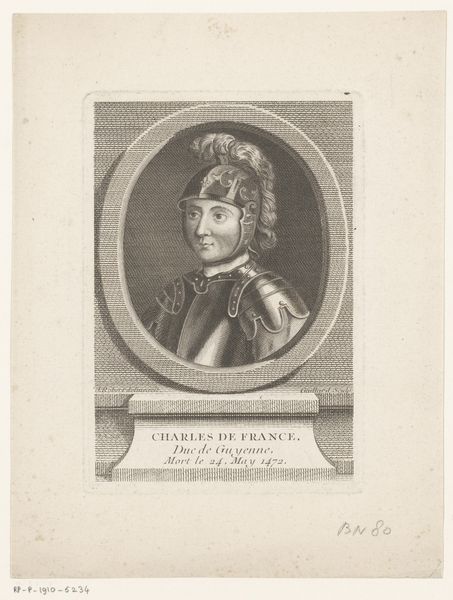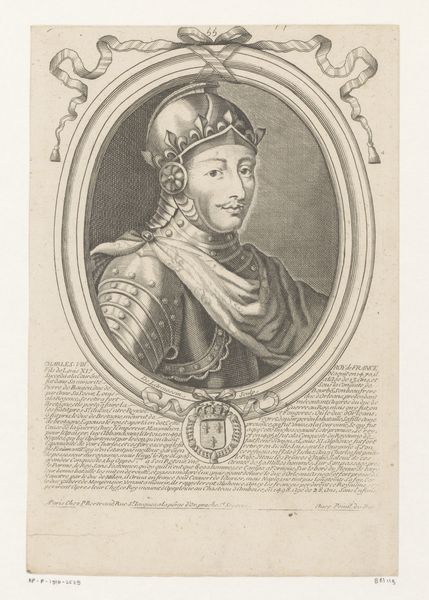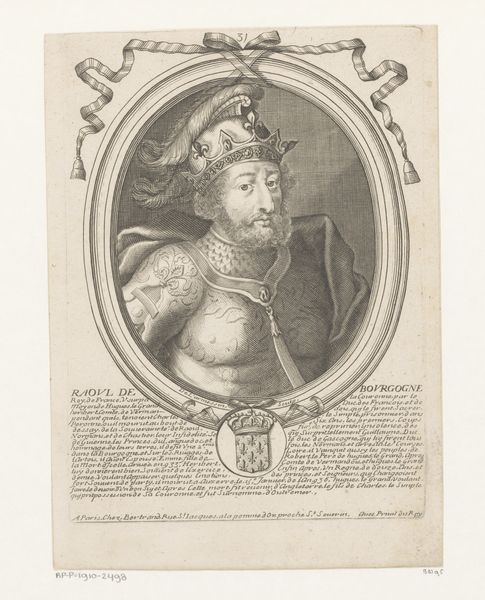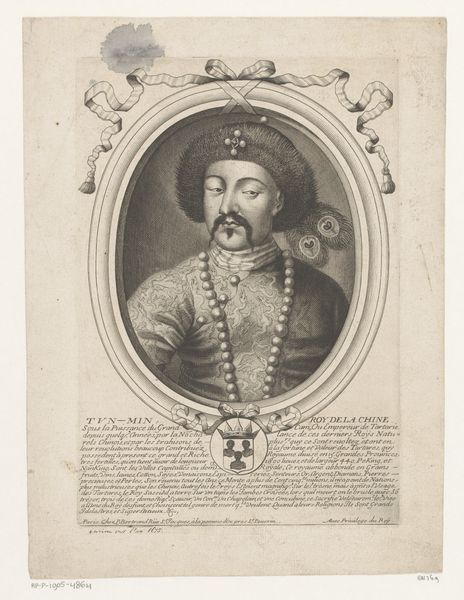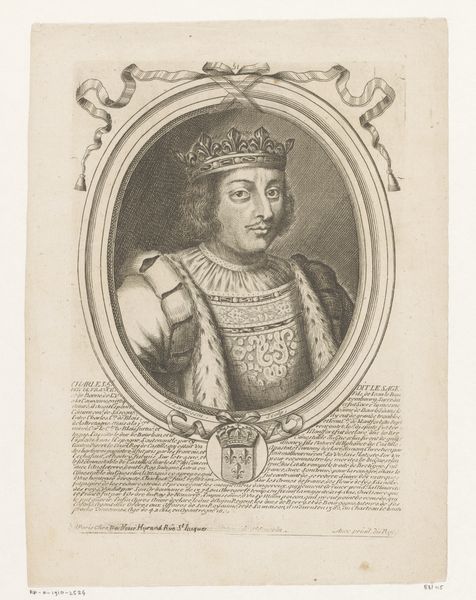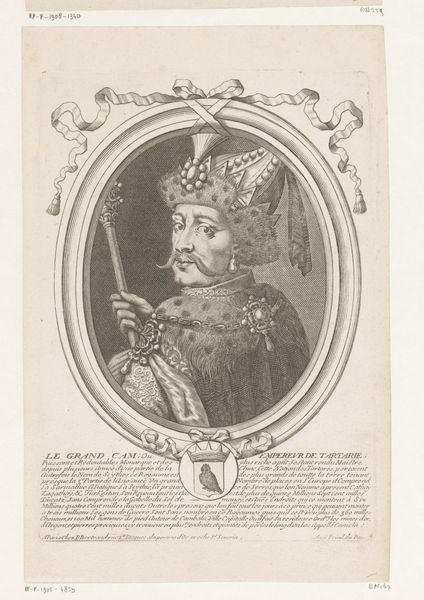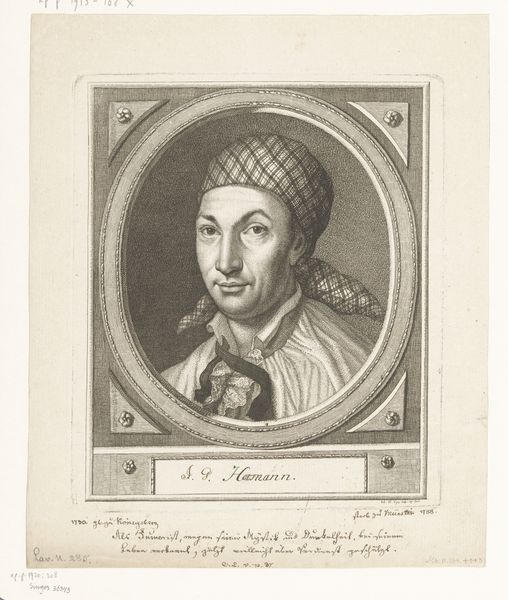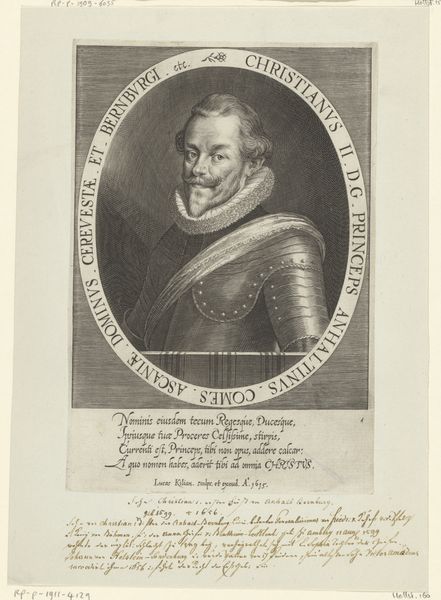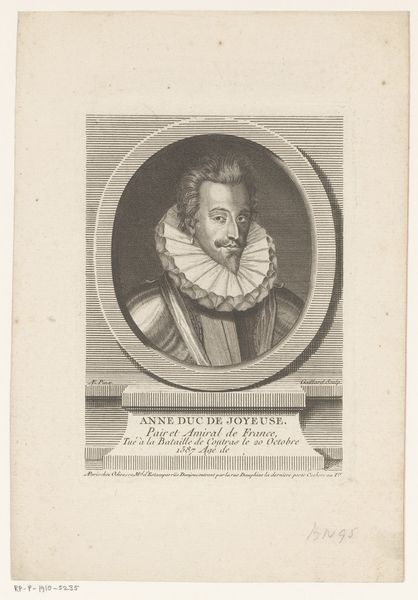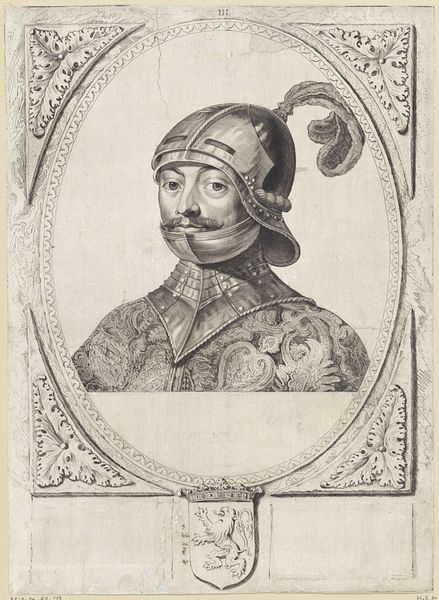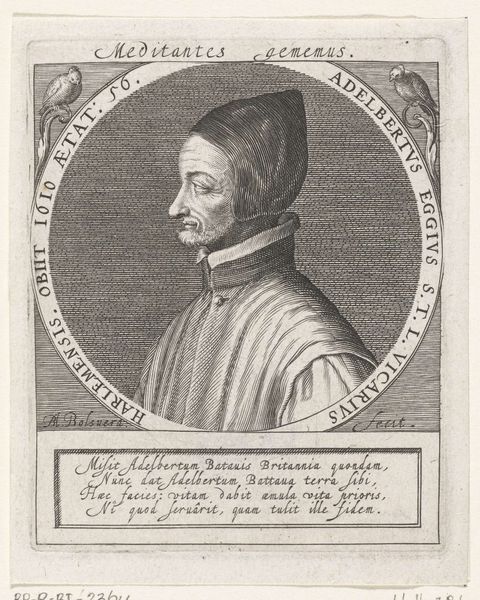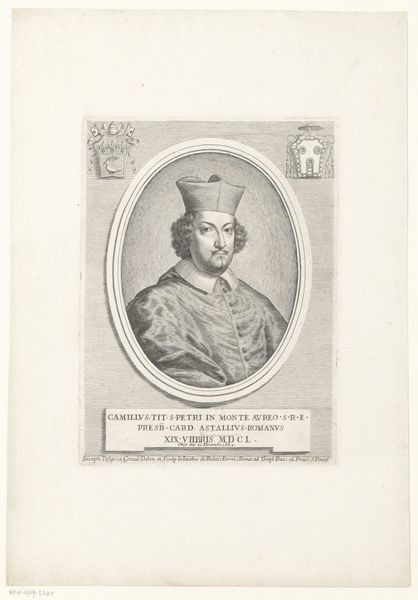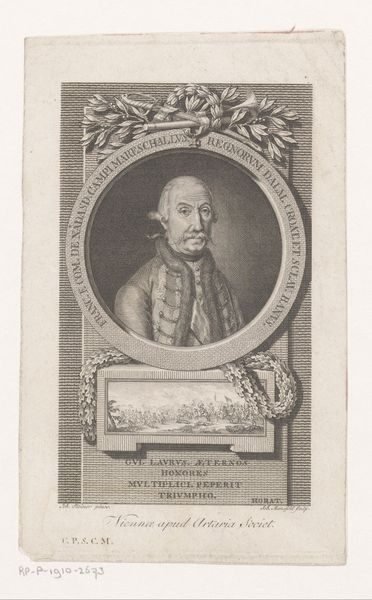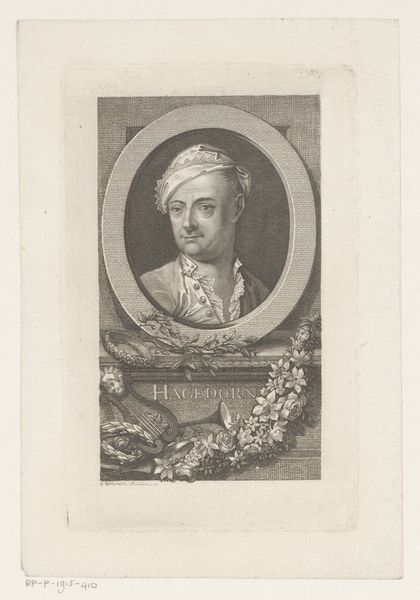
print, engraving
#
portrait
#
baroque
# print
#
old engraving style
#
history-painting
#
engraving
Dimensions: height 149 mm, width 108 mm
Copyright: Rijks Museum: Open Domain
René Gaillard created this engraving, "Portrait of Charles IV of Maine," sometime in the 1700s using metal plates and acid. The incised lines carry a particular social significance. Engraving was a reproductive process, a means of disseminating images widely, making portraits like this accessible to a broader public. The sharpness and precision of the engraved lines give the portrait a crisp, authoritative feel. Look closely, and you can see how the varying density of lines creates shading and volume, defining the contours of Charles' face and armor. The choice of engraving speaks to the cultural value placed on precision, skill, and the ability to reproduce images efficiently. In contrast to unique works of art, engravings facilitated the circulation of knowledge and ideas, contributing to the development of public opinion and cultural exchange. Paying attention to materials and processes helps us understand the social and economic forces that shaped the artwork, blurring traditional distinctions between art and craft.
Comments
No comments
Be the first to comment and join the conversation on the ultimate creative platform.
